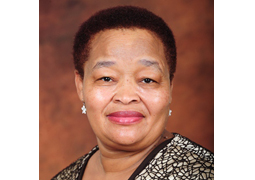
Venue: Virtual Date: 06 May 2022 Time: 09h00
Chairperson of the National Council of Provinces
Speaker of the National Assembly
Deputy Speaker of the National Assembly
President of Salga
Honourable Ministers
House Chairpersons
Honourable Chief Whips
Provincial Speakers
Honourable Members
Esteemed Guests
Programme Director, it is an honour and privilege to welcome all of you to the State Capacity Conference, which is convened under theme: State Capacity: Delineating Weaknesses, Devising Strategic Mechanisms to Accelerate Policy Implementation, the programme forms part of the Sector Parliament Programme.
Hon Members,
Our government defines itself as an interventionist, developmental state, which uses the bureaucracy and its resources as a significant facilitator of growth and development.
Our perception of development embodies social justice, by ensuring that the benefits of economic growth are distributed in a reasonable and equitable manner, amongst the country’s regions and people, and furthermore that development is people-centred and people driven.
Since 1994, South Africa has made significant progress in building the structures of a democratic state. The composition of the public service and local government has been transformed to better represent the entire population.
Over the past year’s, government has introduced a vast array of legislation, policies and programmes to achieve the vision of a better life for all. Government has introduced many public sector reforms to create an efficient, effective, developmental-orientated, people-centred public sector, to serve all the people of South Africa.
The foundations of a capable state have been laid, but there are major concerns about weaknesses in how these structures function, which constrain the state’s ability to pursue and attain its key developmental objectives.
Given the far reaching impact of Covid-19 pandemic on South Africa’s economy and broadly its developmental landscape, there is also consensus that some of the transformational gains garnered since inception of democracy, have significantly regressed.
Furthermore, with the vision 2030 (National Development Plan) deadline looming, the state is particularly hard –pressed to ensure that it redoubles its capacity to implement strategic policies and programmes, which are aimed at economic recovery and social transformation.
Conclusion
Esteemed Guests, have gathered in this manner today to unpack an issue of significant importance, for advancing South Africa’s development agenda. research institutes, thought-leaders and academics all agree, that South Africa is not a country that is poor in ideas and the appropriate legislative frameworks. It is the inability of the broader state machinery to implement its noble ideals, which stands as a key decelerator, of policy implementation, thereby impeding the realization of our developmental objectives.
State capacity should therefore not merely be viewed as an abstract concept that we make reference to when appropriate. It should be recognised as a fundamental determinant, in the confluence of challenges that relate to policy implementation.
It is therefore imperative that we define the nature, peculiarities and extent of capacity related challenges, which are embedded across the various levels and strata of our state machinery. Interventions to address capacity related matters, must be well understood by the legislative sector broadly, including the executive arm of the state, in order to move in concert towards addressing such challenges.
We must therefore urgently prioritize and embolden state capacity, particularly during this COVID induced economic regression, which necessitates a bolder and more urgent response to the advancement of our developmental agenda. We need a state that has the requisite capacity to intervene in the economy in the interests of higher rates of growth and sustainable development. Our people need a state that will be effective and have sustainable programmes that address challenges of unemployment, poverty and underdevelopment with the requisite emphasis on vulnerable groups.
We need to mobilise our people as a whole, particularly the poor, to act as their own liberators through participatory and representative democracy.
What would be needed, and who is capable of contributing and what role is the legislative sector supposed to play in making sure we achieve the objectives of being a developmental state.
Honourable Members, I am not here to deliver a key note address. My job is simply to welcome all of you to this conference which will seek to come up with tangible solutions to the root causes of state capacity related impediments. We need effective and innovative mechanisms to re-engineer the state machinery, towards the realization of the ideals of a capable state.
It is our sincere hope that the discussions today, will also shape our Oversight and Accountability processes as the legislative sector, regarding capacities necessary for a country to be a developmental state.
You are Welcomed

